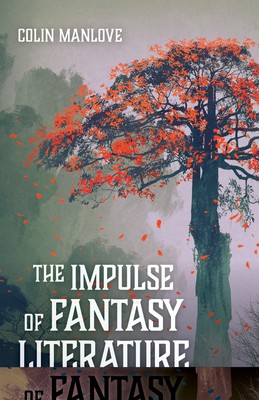
- We will send in 10–14 business days.
- Author: Colin N Manlove
- Publisher: Resource Publications (CA)
- Year: 2020
- Pages: 190
- ISBN-10: 1532677170
- ISBN-13: 9781532677175
- Format: 14 x 21.6 x 1.3 cm, hardcover
- Language: English
- SAVE -10% with code: EXTRA
Reviews
Description
This book grew out of the author's wish to go beyond a formal definition of fantasy to discover a basic urge and interest common to the genre. He finds this urge to be the celebration of identity. Fantasy is ultimately concerned to heighten and praise being, whether that being is God's creation, the world, or the creations of the fantasy writer themselves. This interest can take the form of direct eulogy or of more unconscious fascination. It is seen in fantasy's conservatism and its frequently elegiac mode, and is demonstrated through its formal characteristics such as circular structure and the use of juxtaposition to heighten individuality. It is more overtly present in modern than in pre-1800 fantasy, partly because modern fantasy developed as a Romantic reaction against technology and everything that reduced direct contact between people and the environment. These aspects of fantasy are illustrated from detailed discussion of the tales of Grimm, Walter de la Mare's Told Again, W. M. Thackeray's The Rose and the Ring, Charles Williams's prose fantasies, Ursula le Guin's Earthsea trilogy, E. Nesbit's magic books, George MacDonald's Phantastes and Lilith, T. H. White's The Once and Future King, Mervyn Peake's Gormenghast novels, William Morris's late romances, Lord Dunsany's The King of Elfland's Daughter, E. R. Eddison's The Worm Ouroboros, and Peter Beagle's The Last Unicorn. Together these authors and works provide a cross-section of what is a fundamentally panegyric genre demonstrating its variety, its strengths, and its limitations.
EXTRA 10 % discount with code: EXTRA
The promotion ends in 15d.06:37:05
The discount code is valid when purchasing from 10 €. Discounts do not stack.
- Author: Colin N Manlove
- Publisher: Resource Publications (CA)
- Year: 2020
- Pages: 190
- ISBN-10: 1532677170
- ISBN-13: 9781532677175
- Format: 14 x 21.6 x 1.3 cm, hardcover
- Language: English English
This book grew out of the author's wish to go beyond a formal definition of fantasy to discover a basic urge and interest common to the genre. He finds this urge to be the celebration of identity. Fantasy is ultimately concerned to heighten and praise being, whether that being is God's creation, the world, or the creations of the fantasy writer themselves. This interest can take the form of direct eulogy or of more unconscious fascination. It is seen in fantasy's conservatism and its frequently elegiac mode, and is demonstrated through its formal characteristics such as circular structure and the use of juxtaposition to heighten individuality. It is more overtly present in modern than in pre-1800 fantasy, partly because modern fantasy developed as a Romantic reaction against technology and everything that reduced direct contact between people and the environment. These aspects of fantasy are illustrated from detailed discussion of the tales of Grimm, Walter de la Mare's Told Again, W. M. Thackeray's The Rose and the Ring, Charles Williams's prose fantasies, Ursula le Guin's Earthsea trilogy, E. Nesbit's magic books, George MacDonald's Phantastes and Lilith, T. H. White's The Once and Future King, Mervyn Peake's Gormenghast novels, William Morris's late romances, Lord Dunsany's The King of Elfland's Daughter, E. R. Eddison's The Worm Ouroboros, and Peter Beagle's The Last Unicorn. Together these authors and works provide a cross-section of what is a fundamentally panegyric genre demonstrating its variety, its strengths, and its limitations.


Reviews